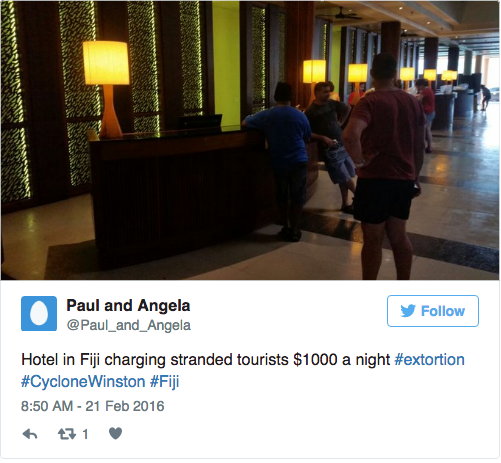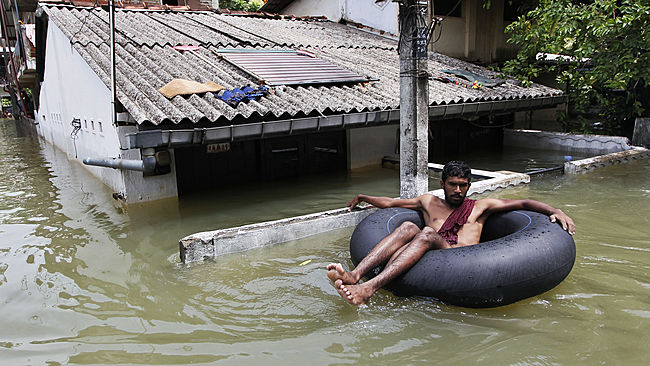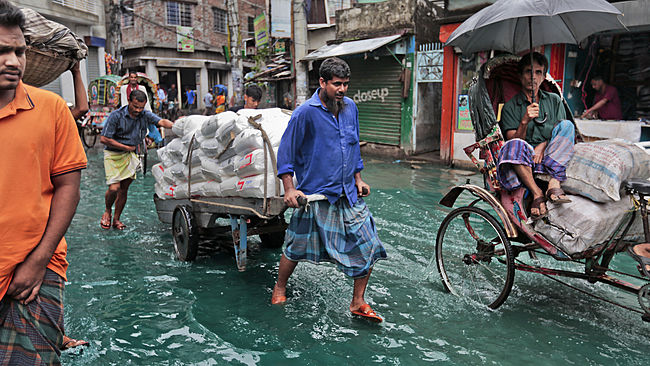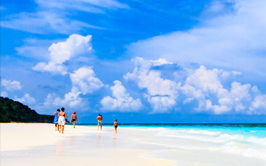Bangladesh, Sri Lanka, United States, Taiwan, Fiji – what do these countries have in common? They’ve all been hit by devastating cyclones.

Just this week, Cyclone Roanu killed 92 people in Sri Lanka and displaced millions. After leaving Sri Lanka, it turned to Bangladesh, unleashing the Bay of Bengal’s first cyclone of the season and taking at least 21 lives.
Earlier this February, thousands of tourists were stranded in Fiji as Tropical Cyclone Winston slammed the Pacific Island.
We all know it’s best to avoid travelling during such stormy seasons, but what should you do if you were unwittingly caught in a cyclone, hurricane, or typhoon during a holiday?
Here are some practical cyclone-survival tips sourced from ABC Emergency, American Red Cross, The Guardian, and the Australian Government Bureau of Meteorology.
Before the cyclone
Get yourself to a safe shelter
When the cyclone warning is issued, your first priority should be to get yourself to a safe shelter as soon as possible. If you are on an island, heed all advice to return to the mainland before the boats stop running.
In cyclone-prone countries, community shelters and bigger resorts are usually built to withstand extreme weather. Smaller resorts, especially those on the coast, however, may not be sturdy enough. Arrange to move into a safer building as soon as you can. Don’t forget that hotels often get booked out in situations like these. They may also take advantage of the emergency by inflating their prices, as one tourist in Fiji vented on Twitter.

Get cash from the ATM
Potential power outage may render your credit cards useless.
Stock up on food that do not require cooking
Bottled water and non-perishable food are the most practical to have with you.
Prepare a safety kit
The American Red Cross recommends a safety kit consisting of bottled water, non-perishable food, warm clothes, a flashlight, First Aid kit, medications, supplies for an infant (if applicable), a multi-purpose tool, personal hygiene items, copies of important papers, cell phone chargers, extra cash, blankets, maps of the area and emergency contact information. Put everything in waterproof bags.
Use tampons
If you are on your period, use tampons instead of sanitary pads to avoid contamination from dirty flood water.
Park your vehicle with the handbrakes on
Return your rented vehicle so that you won’t be liable for any damages. Otherwise, park your vehicle under solid shelter, away from power lines, trees, and streams.
During the cyclone

Stay indoors and away from windows
Do not venture out as flying debris is one of the biggest killers during a cyclone. Hotel staff are usually trained to prepare for emergencies like this. Follow their advice and stay in the central room with the other tourists if they ask you to.
Keep candles and torchlight handy
Power outages may occur so make sure to equip yourself with a secondary source of light.
Be prepared for an emergency evacuation
Wear strong, sturdy shoes and warm clothing and have your safety kit close to you. Stay calm and listen to the authorities.
Wait for the authorities to give the clear sign before going out
Never assume that the cyclone is over even if the wind has died down. Many storms have ‘calm eyes’ in the centre and appear to be over when they’re actually still raging. Often, violent winds will resume in the other direction.
Listen to local radio stations for safety information
A battery-powered radio is your best bet in case the power goes out.
Plan your next move
At this point, you may want to start arranging for a flight out of the country before the airlines get booked out by other travellers stuck in the same predicament. The aftermath of cyclones can get messy and dangerous – definitely not a situation you want to be in.
If you do decide to continue travelling, be prepared for less than comfortable situations such as amenities not working, buildings left in ruins, and stalled public transportation as the country recovers from the damages.
After the cyclone

Get reconnected
Inform your friends and family that you are safe and put them out of their worry! Facebook has the Safety Check feature where you can inform all your friends and family that you are safe.
Don’t go sightseeing
It might be tempting to venture out and see the damage, but the aftermath is still highly dangerous – especially if the storm coincides with high tides, floods and if a storm surge is likely to occur. The sea, rivers, lakes and lagoons are doubly dangerous due to crashing waves and rising flood waters.
Steer clear of…
Rising flood waters that usually swamp the sewage systems and may carry waterborne diseases – don’t swim in or drink it. Also, watch out for damaged power lines, bridges, trees and don’t even think about using wet electrical appliances.
Check your travel insurance
Most holiday insurance don’t have provisions for acts of God, but may cover flight cancellations and delays. If you are on a package tour booked through a travel agent, you might be able to get a refund on accommodation and other ground arrangements.
If you ever find yourself stuck in a hotel lobby with a hundred other frustrated and frightened tourists as the wind howls outside, remember the golden rule: Listen to expert advice and follow instructions.
![]()
Read next:
 |
 |
 |
|
You’re Not Allowed To Visit Thailand’s Koh Tachai Anymore, Here’s Why |
Airsick, Baby? 7 Tried-And-Tested Ways To Overcome Motion Sickness |